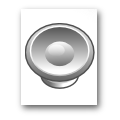Definify.com
Definition 2026
屁
屁
Translingual
Han character
屁 (radical 44 尸+4, 7 strokes, cangjie input 尸心心 (SPP), four-corner 77211, composition ⿸尸比)
References
- KangXi: page 300, character 23
- Dai Kanwa Jiten: character 7654
- Dae Jaweon: page 597, character 1
- Hanyu Da Zidian: volume 2, page 966, character 12
- Unihan data for U+5C41
Chinese
|
simp. and trad. |
屁 | |
|---|---|---|
Glyph origin
| Characters in the same phonetic series (比) (Zhengzhang, 2003) | |
|---|---|
| Old Chinese | |
| 梐 | *piː, *biːʔ |
| 狴 | *piː |
| 悂 | *piː, *pʰi |
| 螕 | *piː |
| 鎞 | *piː |
| 蓖 | *piː |
| 篦 | *piː, *bis |
| 批 | *pʰiː |
| 砒 | *pʰiː |
| 鈚 | *pʰiː, *bi |
| 磇 | *pʰiː |
| 媲 | *pʰiːs |
| 笓 | *biː |
| 膍 | *biː, *bi |
| 陛 | *biːʔ |
| 仳 | *pʰeʔ, *piʔ, *bi, *briʔ |
| 吡 | *pʰeʔ, *piʔ, *biɡ |
| 紕 | *be, *pʰi, *kʰjɯʔ |
| 比 | *piʔ, *pis, *bi, *bis, *biɡ |
| 妣 | *piʔ, *pis |
| 秕 | *piʔ |
| 沘 | *piʔ, *bi |
| 枇 | *piʔ, *bi, *bis |
| 粊 | *pris |
| 庇 | *pis |
| 屁 | *pʰis |
| 琵 | *bi |
| 毗 | *bi |
| 貔 | *bi |
| 豼 | *bi |
| 蚍 | *bi |
| 芘 | *bi, *bis |
| 肶 | *bi |
| 魮 | *bi |
| 阰 | *bi |
| 坒 | *bis, *biɡ |
| 玭 | *bin |
Phono-semantic compound (形聲, OC *pʰis) : semantic 尸 (“body”) + phonetic 比 (OC *piʔ, *pis, *bi, *bis, *biɡ). A word which understandably appears late in the literature.
Etymology
From Proto-Sino-Tibetan *pja-n/t/s (“fart; ****”). Cognate with Tibetan ཕྱེན (phyen), འཕྱེན ('phyen, “flatulence”), Jingpho hpyet (“to fart”).
Pronunciation
- Mandarin
- Cantonese (Jyutping): pei3
- Min Dong (BUC): pói / pé
- Min Nan (POJ): phùi
- Wu (Wiktionary): phi (T2)
- Mandarin
- (Standard Chinese, Beijing)+
- Pinyin:
- Zhuyin: ㄆㄧˋ
- Wade-Giles: p'ih4
- Gwoyeu Romatzyh: pih
- IPA (key): /pʰi⁵¹/
-

- (Standard Chinese, Beijing)+
- Cantonese
- (Standard Cantonese, Guangzhou)+
- Jyutping: pei3
- Yale: pei
- Cantonese Pinyin: pei3
- IPA (key): /pʰei̯³³/
- (Standard Cantonese, Guangzhou)+
- Min Dong
- (Fuzhou)
- Bàng-uâ-cê: pói / pé
- IPA (key): /pʰuɔi²¹³/, /pʰɛi²¹³/
- Note: pói - colloquial; pé - literary.
- (Fuzhou)
- Min Nan
- (Hokkien)
- Pe̍h-ōe-jī: phùi
- Tâi-lô: phuì
- Phofsit Daibuun: phuix
- IPA (Xiamen): /pʰui²¹/
- IPA (Quanzhou): /pʰui⁴¹/
- IPA (Zhangzhou): /pʰui²¹/
- IPA (Taipei): /pʰui¹¹/
- IPA (Kaohsiung): /pʰui²¹/
- (Hokkien)
- Wu
- (Shanghainese)
- Wiktionary: phi (T2)
- IPA (key): /pʰi³⁴/
- (Shanghainese)
| Rime | |
|---|---|
| Character | 屁 |
| Reading # | 1/1 |
| Initial (聲) | 滂 (2) |
| Final (韻) | 脂 (15) |
| Tone (調) | Departing (H) |
| Openness (開合) | Open |
| Division (等) | III |
| Fanqie | 匹寐切 |
| Reconstructions | |
| Zhengzhang Shangfang |
/pʰiɪH/ |
| Pan Wuyun |
/pʰiH/ |
| Shao Rongfen |
/pʰjɪH/ |
| Edwin Pulleyblank |
/pʰiH/ |
| Li Rong |
/pʰiH/ |
| Wang Li |
/pʰiH/ |
| Bernard Karlgren |
/pʰiH/ |
| Expected Mandarin Reflex |
pì |
| Zhengzhang system (2003) | |
|---|---|
| Character | 屁 |
| Reading # | 1/1 |
| No. | 524 |
| Phonetic component |
比 |
| Rime group |
脂 |
| Rime subdivision |
2 |
| Corresponding MC rime |
屁 |
| Old Chinese |
/*pʰis/ |
| Notes | 山海經作米旁費 |
Definitions
屁
- (colloquial) flatulence; fart
- 放屁 ― fàngpì ― to fart; to bullshit
- (colloquial) buttocks; backside
- (colloquial) to fart; to pass gas
- 屁者先知 ― pìzhěxiānzhī ― [jocular] The farter is usually the first to realise (and complain about the fart).
- (vulgar) rubbish; worthless; useless; insignificant; trivial
- (vulgar, usually in the negative) a damn thing; (no)thing
- (vulgar) Negates the meaning of the sentence.
Compounds
Japanese
Kanji
屁
Readings
Compounds
Compounds
|
| Kanji in this term |
|---|
| 屁 |
|
へ Hyōgaiji |
| kun'yomi |
Pronunciation
Noun
Synonyms
- おなら (onara)
References
- ↑ 2006, 大辞林 (Daijirin), Third Edition (in Japanese), Tōkyō: Sanseidō, ISBN 4-385-13905-9
- ↑ 1998, NHK日本語発音アクセント辞典 (NHK Japanese Pronunciation Accent Dictionary) (in Japanese), Tōkyō: NHK, ISBN 978-4-14-011112-3
Korean
Hanja
屁 • (bi) (hangeul 비, revised bi, McCune-Reischauer pi)
- This term needs a translation to English. Please help out and add a translation, then remove the text
{{rfdef}}.
Vietnamese
Han character
屁 (thí)
- This term needs a translation to English. Please help out and add a translation, then remove the text
{{rfdef}}.